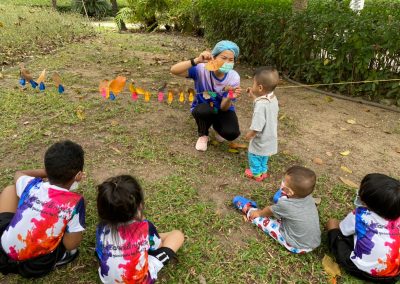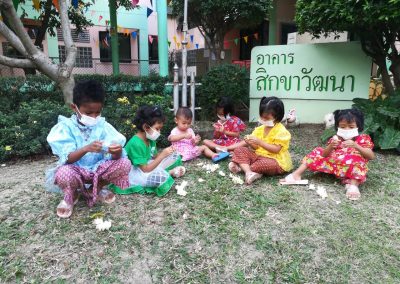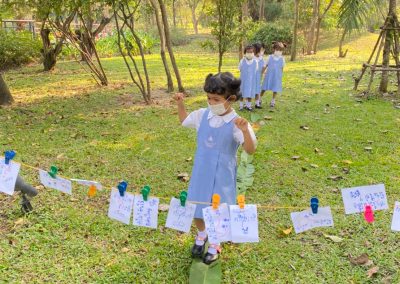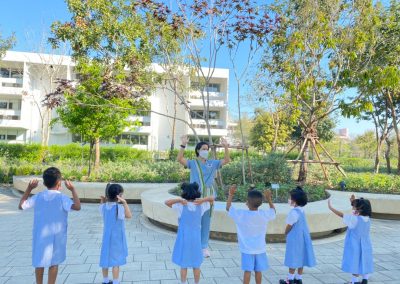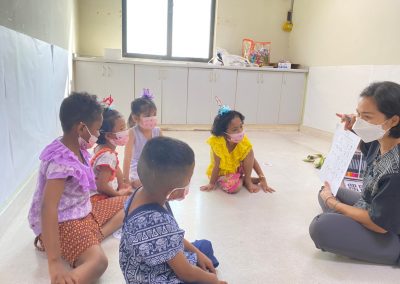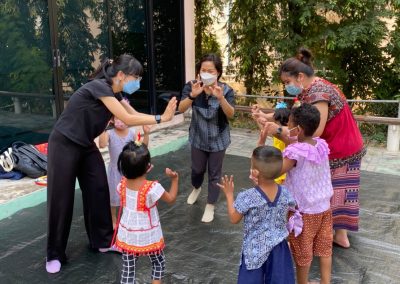![]()
![]()
![]()
Composed by Dr. Chadarat Hengsadeekul
Childhood Trauma occurs when a child experiences threatened negative events. The trauma can take in different forms such as abuse, neglect, violence, loss, separation, unmet healthcare, risk, injury, etc. Trauma exposure often begins early in life. Therefore, young children are at the highest risk for exposure to trauma and most vulnerable as childhood trauma causes long-lasting problems across multiple areas of development. However, children are more likely to exhibit resilience to childhood trauma when families, schools, community-based services are responsive to their specific needs and employ a resilience framework for their recovery.
Assoc. Prof. Adisak Plitpolkarnpim, the Director of NICFD said the circumstance of dysfunctional families creates emotional pain and toxic stress to young children. To build resilience to the traumatic children, he had conducted a trauma treatment for children who need the healing by separating them from the traumatic atmosphere and replacement with the atmosphere of love, warmth, and feeling safe. He believes that offering children a well care home with such pleasant atmosphere is a good alternative for building resilience. And this leads to the initiatives of the “Trauma Treatment & Build Resilience to Traumatic Children” project which is called “Samarn Jai Pathomwai Sathit Center” in Thai.
The Trauma Treatment & Build Resilience to Traumatic Children Project is the collaboration among 5 major parties namely 1) Child Safety Promotion and Injury Prevention Research Center (CSIP), Department of Pediatrics, Ramathibodi Hospital, 2) National Institute for Child and Family Development (NICFD), Mahidol University, 3) Bangkok Homes for Children and Families, Department of Children and Youth Affairs, Ministry of Social Development and Human Security, 4) Office of the Public Sector Development Commission (OPDC), and 5) Thammasat University Research and Consultancy Institute.
This initiative project has been set up at NICFD, Mahidol university. The project takes care children under 6 year who exposed to trauma. Under the implementation of the project, it promises on the emotional well-being of the children and helps them reach their full potential. The project highlights the inclusive education and care that promotes resilience to early childhood trauma, and in response to the Sustainable Development Goals No. 3, 4, and 17.
Taking care of traumatic children, it requires a comprehensive effort involving many adults in children’s live. In addition, to have this initiative project being the pilot model for nationwide local childcare centres, it inspires Dr. Chadarat Hengsadeekul, the lecturer of CFIN 514: Design Thinking and Innovation for Child Development and Protection to lead NICFD’s master students to do prototypes for the improvement of this project and its staff.

